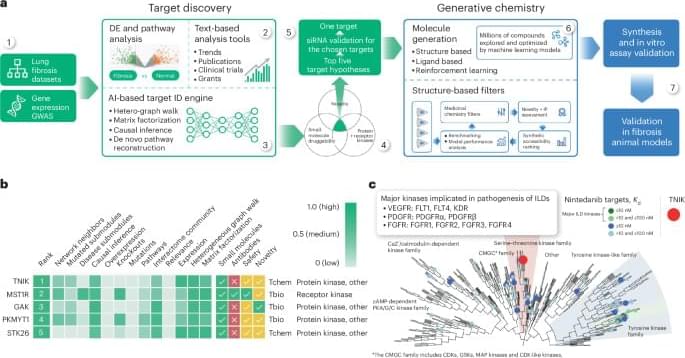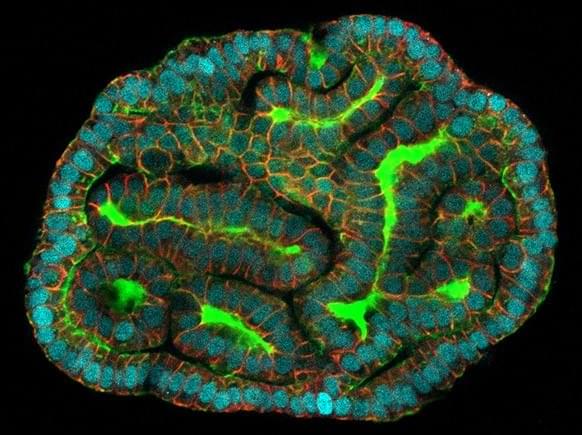Mar 9, 2024
How water guides the assembly of collagen, the building block of all humans
Posted by Paul Battista in categories: biotech/medical, materials
Water determines life: humans are three-quarters water. An international research team led by the University of Amsterdam (UvA) has now discovered how water also determines the structure of the material that holds us together: collagen.
In a paper published in PNAS, the researchers elucidate the role of water in the molecular self-assembly of collagen. They show that by replacing water with its ‘twin molecule’ heavy water (D2O), one can ‘tune’ the interaction between collagen molecules, and thus influence the process of collagen self-assembly. The findings will help to better understand the tissue failures resulting from heritable collagen-related diseases, such as brittle bone disease (osteogenesis imperfecta).
As lead author Dr. Giulia Giubertoni of the UvA’s Van ‘t Hoff Institute for Molecular Sciences (HIMS) puts it, “In studying these and other collagen diseases, many researchers, including myself, … have always missed an important part of the puzzle, and the possibility that tissue failure might be partly due to water-collagen interaction was not taken very seriously. We now show that perturbing the water layer around the protein, even very slightly, has dramatic effects on collagen assembly.”

















